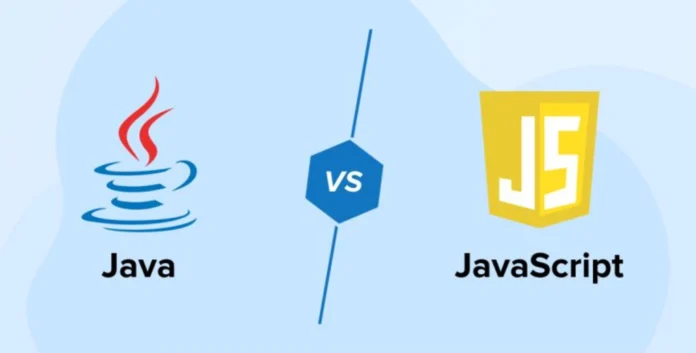When beginners enter the world of programming, they often confuse Java and JavaScript due to their similar names. However, these two languages are vastly different in terms of their purpose, syntax, and use cases. In this detailed guide, we will explore the differences between Java and JavaScript, their key features, and when to use each one—with practical examples for better understanding.
Table of Contents
- Introduction to Java and JavaScript
- Key Differences Between Java and JavaScript
- Syntax Comparison with Examples
- Performance and Execution
- Use Cases: When to Use Java vs. JavaScript
- Popular Frameworks and Libraries
- Job Market and Career Opportunities
- Conclusion: Which One Should You Learn?
1. Introduction to Java and JavaScript
What is Java?
Java is a high-level, object-oriented, compiled programming language developed by Sun Microsystems (now owned by Oracle) in 1995. It follows the “Write Once, Run Anywhere” (WORA) principle, meaning Java code can run on any device with a Java Virtual Machine (JVM).
Key Features of Java:
- Statically typed (variable types must be declared)
- Platform-independent (runs on JVM)
- Used for backend development, Android apps, enterprise software
- Strong memory management & multi-threading support
What is JavaScript?
JavaScript (JS) is a dynamic, interpreted scripting language created by Brendan Eich in 1995 for web development. Unlike Java, JavaScript runs directly in the browser and is mainly used for front-end development, though it now also powers back-end (Node.js).
Key Features of JavaScript:
- Dynamically typed (variable types are flexible)
- Runs in the browser (client-side) and server-side (Node.js)
- Used for interactive web pages, SPAs (Single Page Applications), and APIs
- Asynchronous programming with Promises & async/await
2. Key Differences Between Java and JavaScript
| Feature | Java | JavaScript |
|---|---|---|
| Type | Compiled, statically typed | Interpreted, dynamically typed |
| Execution | Runs on JVM | Runs in browser/Node.js |
| Use Case | Backend, Android, Big Data | Frontend, Full-stack, Web Apps |
| Syntax | More verbose, strict | Flexible, less boilerplate |
| Concurrency | Multi-threading | Single-threaded (Event Loop) |
| Performance | Faster (compiled) | Slower (interpreted) |
3. Syntax Comparison with Examples
Example 1: Hello World Program
Java (Statically Typed)
public class HelloWorld {
public static void main(String[] args) {
System.out.println("Hello, World!");
}
}- Requires a class and main method.
- Compiled before execution (
javac HelloWorld.java→java HelloWorld).
JavaScript (Dynamically Typed)
console.log("Hello, World!");- Runs directly in the browser or Node.js.
- No compilation needed.
Example 2: Variables and Data Types
Java (Explicit Typing)
int age = 25;
String name = "Alice";
double price = 19.99;- Types must be declared.
JavaScript (Dynamic Typing)
let age = 25;
let name = "Alice";
let price = 19.99;- Types are inferred.
Example 3: Functions/Methods
Java (Method in a Class)
public class Calculator {
public static int add(int a, int b) {
return a + b;
}
}- Must be inside a class.
JavaScript (Standalone Function)
function add(a, b) {
return a + b;
}
// OR (Arrow Function)
const add = (a, b) => a + b;- Functions can be defined anywhere.
4. Performance and Execution
- Java is generally faster because it is compiled into bytecode and optimized by the JVM.
- JavaScript is slower in raw execution but excels in real-time web interactions due to Just-In-Time (JIT) compilation in modern engines (V8, SpiderMonkey).
5. Use Cases: When to Use Java vs. JavaScript
Java is Best For:
✅ Android App Development
✅ Enterprise Backend (Spring Boot)
✅ Big Data (Hadoop, Spark)
✅ High-performance Computing
JavaScript is Best For:
✅ Frontend Web Development (React, Angular, Vue)
✅ Backend with Node.js
✅ Real-time Apps (Chat, Gaming)
✅ Cross-platform Mobile Apps (React Native)
6. Popular Frameworks and Libraries
| Java | JavaScript |
|---|---|
| Spring Boot | React.js |
| Hibernate | Angular |
| Android SDK | Vue.js |
| Apache Spark | Node.js (Backend) |
7. Job Market and Career Opportunities
- Java is dominant in enterprise applications, banking, Android development.
- JavaScript is essential for web development, startups, and full-stack roles.
- Salaries are competitive for both, with JavaScript having more demand in web-centric companies.
8. Conclusion: Which One Should You Learn?
- Learn Java if:
- You want to build Android apps.
- You’re interested in enterprise software.
- You prefer strong typing and OOP principles.
- Learn JavaScript if:
- You want to become a web developer.
- You like flexibility and quick prototyping.
- You aim for full-stack development (MERN/MEAN stack).
Final Verdict
- Java = Strong, structured, backend-focused.
- JavaScript = Flexible, web-centric, full-stack.
Both languages are powerful in their domains, and learning both can make you a versatile developer.
What’s Next?
- If you’re new to coding, start with JavaScript for web dev.
- If you’re into mobile or backend systems, Java is a great choice.

